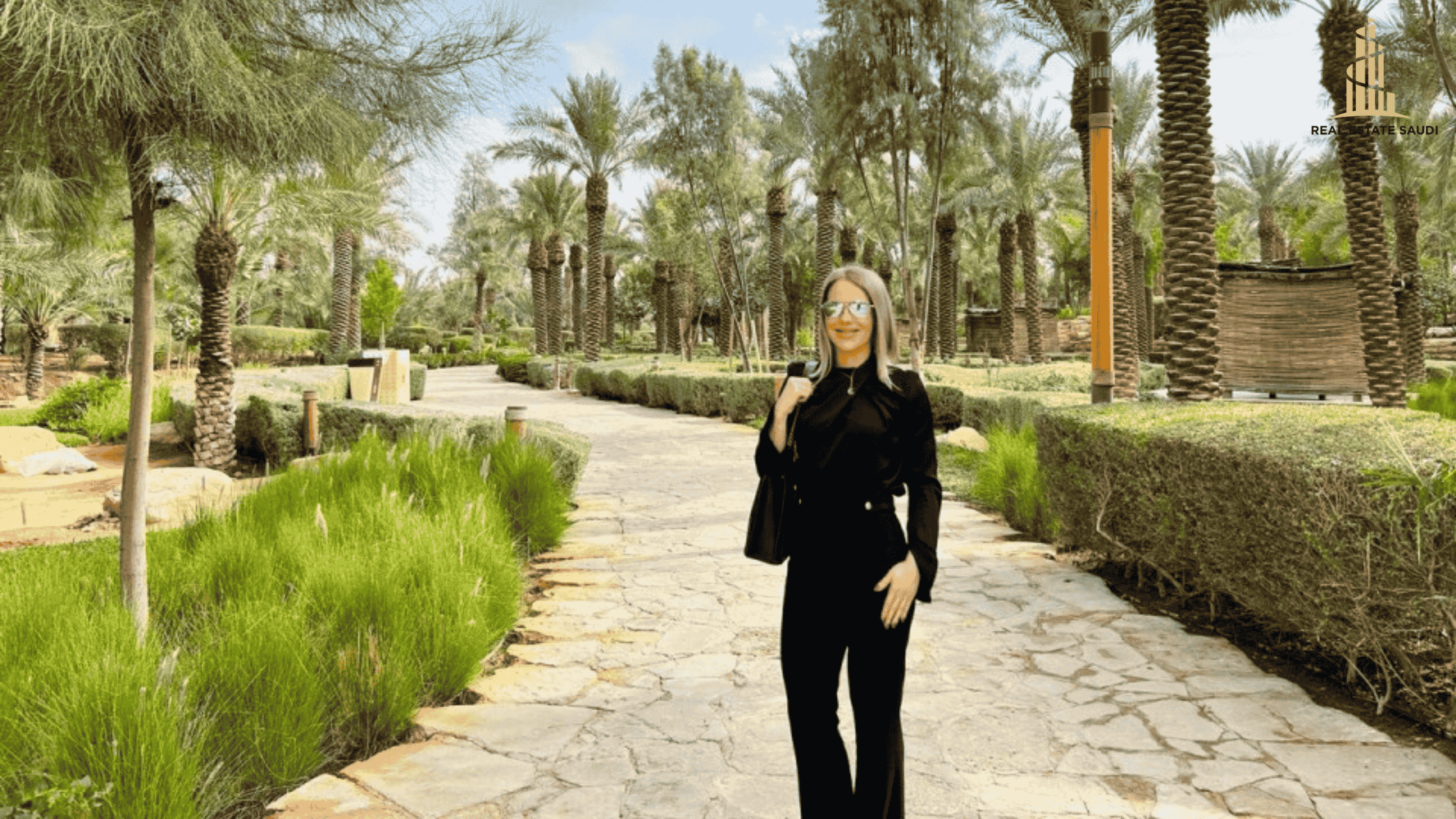Overview: Can Non-Saudis Own or Invest in Saudi Real Estate?
Yes — non-Saudis can legally own and invest in real estate in Saudi Arabia, but this right is subject to specific legal frameworks and government regulations. The Kingdom has taken significant steps to modernize its property laws and real estate market to welcome foreign investment in Saudi real estate. These steps are aligned with Vision 2030 city planning, a national strategy that emphasizes economic diversification, infrastructure growth, and international engagement.
Saudi Arabia is targeting global investors, multinational corporations, and high-net-worth individuals interested in emerging markets. As a result, it has relaxed some of the longstanding restrictions on foreign ownership and launched regulatory platforms to facilitate secure, transparent transactions.
Historically, property ownership was limited to Saudi citizens and GCC nationals. Today, with recent reforms by the Ministry of Investment (MISA), the market is far more accessible to non-Saudis. However, access is governed by strict requirements, which vary based on whether the buyer is an individual, a corporate entity, or a resident expat.
“Saudi Arabia has opened its real estate market to global investors — but it comes with legal structure and limitations. Understanding these rules is critical to making informed decisions.”
Legal Framework for Foreign Real Estate Ownership in Saudi Arabia
The non-Saudi real estate ownership law is built on a growing body of legislation designed to enable secure and regulated participation of foreigners in the Saudi property market. Key legal instruments include:
- The Foreign Investment Law (2000) — sets the foundation for international property and business ownership
- Real Estate Ownership Regulations for Non-Saudis (2000 onward) — revised several times to reflect investor demand and global best practices
- Municipality and zoning regulations — govern where and what type of properties can be owned
- Vision 2030 updates — shape modern reforms by encouraging transparency, digitization, and urban expansion
Together, these form a legal framework that allows real estate law for foreigners in Saudi Arabia to function with government oversight and investor protection. While the law permits ownership, it does not provide blanket rights — each transaction must be licensed and reviewed based on location, value, and intended usage.
Conditions for Real Estate Ownership by Non-Saudis
Foreigners must meet several specific conditions to legally purchase or invest in Saudi property. These conditions ensure that foreign investment supports economic development without compromising national interests.
Main Requirements:
- MISA license: Required for all corporate buyers and for individuals investing above certain financial thresholds
- Minimum investment value: May range from SAR 10 million to SAR 30 million+ for commercial or strategic zones
- Stated purpose: Property must match declared use — residential, industrial, commercial, or mixed-use
- Regulatory clearance: Must receive approvals from municipal zoning authorities and the Real Estate General Authority
- Usage constraints: Properties cannot be repurposed or resold before a designated period without re-approval
Example: A German logistics company seeking warehouse space in Jeddah must apply for a foreign investment license Saudi real estate, submit project details to MISA, and meet the SAR 30 million capital requirement.
Restricted Zones and Areas Prohibited for Foreign Ownership
Despite recent liberalization, there are still restricted areas for foreign ownership KSA that non-Saudis are legally prohibited from accessing. This includes:
- Border zones (security-sensitive areas)
- Military installations and buffer zones
- Sacred sites: Makkah and Madinah are off-limits for most foreigners, although Muslim investors from select nationalities may obtain partial access under conditional approvals
- Heritage sites and protected environmental zones
Investors must check with municipal and regional planning departments to confirm if a particular plot or building falls under a restricted zone. Violations may result in penalties, cancellation of purchase, or even blacklisting of the investor’s business.
Investment Licenses and Legal Procedures for Foreign Entities
Understanding how to buy property in Saudi Arabia as a foreigner requires familiarity with the investment process. For corporate and high-value foreign investors, the journey includes legal registrations, licensing, and compliance checks.
Step-by-Step Guide:
- Company Formation: Establish a legal entity in Saudi Arabia through the Ministry of Investment
- Business Proposal: Submit a comprehensive plan detailing the nature of property investment or development
- Commercial Registration: Obtain a registration number from the Ministry of Commerce
- Investment License Approval: Wait for MISA’s decision after review and inspection
- Transaction Execution: Sign property contracts at a certified notary and register title on Najiz, the national real estate registry
You may also need:
- Approvals from local municipalities (zoning clearance)
- Site assessments or engineering reviews
- Integration into Ihkam (for title verification) and Ejar (if leasing residential units)
Real Estate Opportunities for Expats Living in Saudi Arabia
Can expats buy property in Saudi Arabia? The answer is yes — under regulated conditions.
Expats with a valid Iqama (residency permit) can:
- Purchase apartments and villas in designated residential compounds
- Own one residential property for personal use, subject to approval
- Lease property for long-term stays, commercial ventures, or home offices
Limitations include:
- No land ownership unless explicitly allowed under special licensing
- No resale within 5 years unless justified by legal grounds
- No mortgage access in many cases, meaning expats rely on personal capital or company sponsorships
Still, the real estate opportunities for expats living in Saudi Arabia are improving as more developers launch expat-friendly projects in areas like Riyadh, Jeddah, Al Khobar, and KAEC (King Abdullah Economic City).
Documents and Registration Requirements for Non-Saudis
Proper documentation is essential for compliance with real estate law for foreigners in Saudi Arabia. Here’s what’s required:
For Individual Buyers:
- Passport copy
- Valid Iqama or residency visa
- Proof of income or employment
- Bank statements showing fund origin
- No-objection certificate (NOC) from sponsor/employer
For Corporate Buyers:
- Articles of Incorporation
- Commercial Registration certificate
- Approved investment license from MISA
- Project proposal and land use plan
- Notarized board resolution authorizing purchase
Registration can be done through:
- The Najiz platform for legal title transfer
- Municipal offices for zoning verification
- Ihkam for confirming unregistered or inherited titles
- Ministry of Justice for document notarization and legal translation
Common Challenges and Legal Pitfalls for Foreign Investors
Foreign investors face several obstacles when navigating Saudi Arabia’s real estate landscape. Awareness and preparation can prevent costly delays.
Common Pitfalls:
- Investing in restricted areas for foreign ownership KSA due to poor due diligence
- Falling victim to fraudulent agents or unlicensed intermediaries
- Delays in receiving MISA licenses or zoning approvals
- Legal document errors, especially in translation and notarization
- Contract disputes due to ambiguous terms
How to Avoid Them:
- Engage licensed real estate consultation for foreigners Saudi
- Always verify property documentation through Najiz and municipal records
- Translate contracts via government-accredited legal translators
- Use official platforms for registration and payment
Real Estate Saudi Offers Expert Legal Assistance for Foreign Buyers
At Real Estate Saudi, we specialize in helping non-Saudis navigate complex legal and regulatory hurdles. Whether you’re an expat buying your first home or a global company establishing a commercial footprint, our services ensure compliance and peace of mind.
Our Services Include:
- Legal advisory on non-Saudi real estate ownership law
- Assistance in obtaining an investment license Saudi real estate
- Identification of legal properties outside restricted areas for foreign ownership KSA
- Title verification and document preparation via Najiz and Ihkam
- Full real estate consultation for foreigners Saudi for buyers, companies, and institutions
Need help navigating Saudi real estate laws as a non-Saudi investor? Book your free consultation with Real Estate Saudi — and get expert legal guidance tailored to your investment goals.
Certain FAQs
Can expats buy property in Saudi Arabia?
Yes, expats with valid residency permits can buy apartments or villas in designated zones. However, can expats buy property in Saudi Arabia is a common question, and it’s important to note that land ownership is still restricted unless special approval is obtained.
What documents are required to buy property as a non-Saudi?
To comply with real estate law for foreigners in Saudi Arabia, non-Saudis must provide a passport, valid Iqama, proof of income, and a MISA investment license if purchasing through a company. All documents must be verified and submitted via platforms like Najiz or Ihkam.
What areas are off-limits for foreign property ownership?
According to the restricted areas for foreign ownership KSA rule, non-Saudis cannot buy property in border regions, military zones, or holy sites like Makkah and Madinah (with some exceptions for Muslim nationals).
How do I get an investment license to own real estate in Saudi Arabia?
Obtaining an investment license Saudi real estate involves registering your business with MISA, submitting a project proposal, and receiving commercial registration. Once approved, you can purchase and register real estate.
Is legal consultation necessary for foreign real estate investment?
Absolutely. Real estate consultation for foreigners Saudi helps avoid pitfalls like buying restricted land or dealing with unlicensed brokers. Legal advisors ensure all processes are compliant and transparent.





